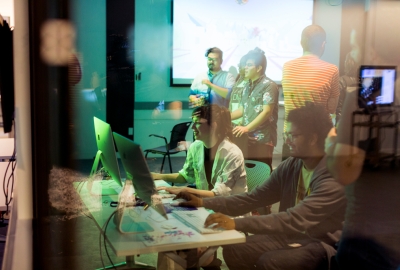African-American music, including slave songs, gospel, blues, and jazz, has had a
profound influence on virtually every form of the popular music of the past 100 years. Students explore that impact through a detailed tracing of the roots and evolution of country western, doowop, rock’n’roll, rhythm & blues, soul, funk, reggae, rap, hip hop, contemporary R&B, and other genres.
Course #
MPATC-GE 2025
Credits
3
Department
Music and Performing Arts Professions


